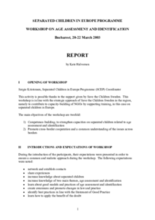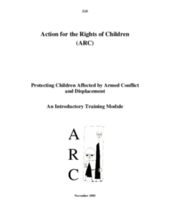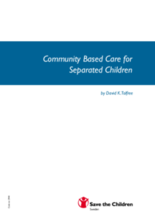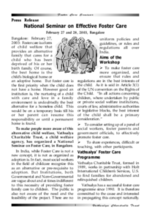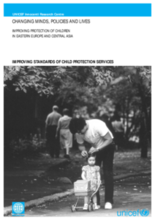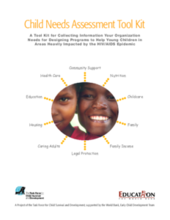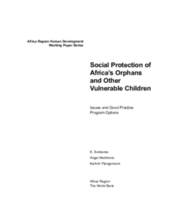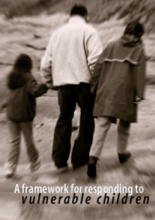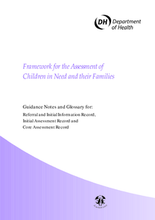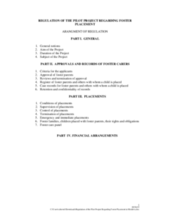Displaying 261 - 270 of 281
Summary of a workshop to address age assessment, identification and reception of separated children to promote guardianship, family tracing and reunification. Focuses on Romania, Bulgaria and Hungary.
Training module outlining key principles concerning the protection of children affected by armed conflict and displacement. Topics include legal frameworks, identifying protection issues, threats to children in emergencies, and promoting healthy child development.
A paper discussing the shortcomings of systems in which separated children are placed into residential/ institutional forms of care. It also considers community-based and some other forms of care as alternative approaches to preventing unnecessary separation of children from their families.
Explores temporary foster care as an alternative to institutionalization in India. Emphasis on analyzing and reforming guidelines for foster care.
Contains practical tools and policy guidance for family and child welfare policy makers and practitioners. Relevant topics include gatekeeping, redirecting resources into preventive and family based services, and standards of care.
A comprehensive tool kit providing a methodology, questionnaire and software for assessing the needs of young children affected by the HIV/AIDS epidemic. Used to help design of service programs, secure funding, and monitor and evaluate programs specifically targeting the needs of young children and their families.
Overviews the causes and consequences of the orphan crisis in Africa and analyzes current social protection responses. Suggests good practices in social protection of orphans and vulnerable children.
Discusses the value of the UK Children in Need assessment framework for use by Victorian Family Services (Australia).
Guidance on how to complete the referral form, initial assessment and core assessment from the resource Framework for the Assessment of Children and their Families.
Regulations on foster care arrangements in Moldova, including the process of recruiting carers, the conditions of placements, and financial measures.

